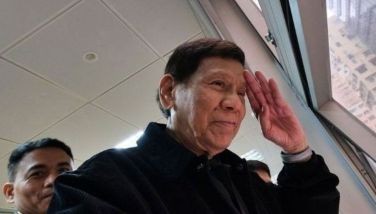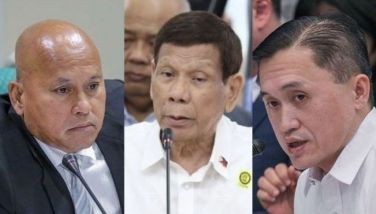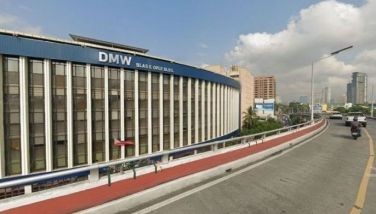MAP urges creation of economic security body
MANILA, Philippines — Business group Management Association of the Philippines (MAP) is pushing for the creation of an economic security council following the United States’ imposition of reciprocal tariffs on trade partners including the Philippines.
“We in the MAP express our concern over recent global trade developments, particularly the 17 percent tariff imposed by the US. This is a reality that will spread across many countries and will clearly have varied economic impact to each nation,” the group said in a statement yesterday.
As such, it called on government agencies including the Department of Trade and Industry, Department of Foreign Affairs, the National Security Council, the Department of Finance, the National Economic and Development Authority, the Philippine Economic Zone Authority (PEZA), the Anti-Red Tape Authority and the Department of Labor and Employment to consider the impact of the tariffs on the Philippines’ economic security.
“As what many countries have already done in anticipation of these developments, we recommend the formation of an economic security council under the Office of the President, composed of the above-named government agencies together with appropriate private sector and industry representatives,” MAP said.
The council should be composed of individuals with diplomatic, economic and industry expertise, whose main tasks would be to compile data and information, analyze the impact on the economy as well as recommend measures to mitigate risks on affected industries, it added.
Further, the council will also identify opportunities and alternative markets, as well as provide scenario modelling analysis to help the government in coming up with strategies and in negotiations with counterparts dealing with the new realities of international trade.
“While our country at this time is seen as not as negatively affected as others, with the global economy being an integrated ecosystem, we cannot discount the possibility that as other countries are affected, it may prosper into a contagion that will eventually affect us,” MAP said.
“We firmly believe that recent developments require a different paradigm and approach,” the group noted.
PEZA director general Tereso Panga said yesterday the investment promotion agency recognizes the challenges the reciprocal tariff presents for companies that operate within its economic zones.
He said locators from the electronics manufacturing services-semiconductor manufacturing services (EMS-SMS) and information technology-business process management (IT-BPM) industries have the biggest share in export sales at 44.5 percent and 28.5 percent, respectively.
The US also serves as the country’s top export destination.
“While the 17 percent tariff will make Philippine exports to the US more expensive, it is worth noting that this rate remains among the lowest in Southeast Asia,” Panga said.
He said neighboring countries face higher reciprocal tariffs such as Vietnam (46 percent), Thailand (36 percent), Indonesia (32 percent) and Malaysia (24 percent).
“This comparatively lower rate highlights the strong economic ties between the Philippines and the US and positions the country more favorably than its regional counterparts. PEZA sees this as an opportunity to attract greater investment – particularly from companies based in countries imposed higher tariffs by the US – seeking to reduce export costs by relocating operations to the Philippines,” he said.
Amid the evolving global trade environment, he said the PEZA is proactively promoting the Philippines under the “China+1+1” strategy, which encourages businesses to maintain operations in China, while diversifying their supply chains by expanding into the Philippines.
He also said the Philippines’ participation in the Regional Comprehensive Economic Partnership, the impending renewal of the European Union Generalized Scheme of Preferences and the enactment of the CREATE MORE Act are seen to mitigate the tariff impact and make the Philippines a more attractive investment destination.
Given the importance of the IT-BPM and EMS-SMS sectors, he said the government may lobby for a reduced tariff for Philippine exports of electronics-semiconductor products and IT-BPM services.
“This proposal is worth considering by the US since a big number of our EMS-SMS and IT-BPM investors are American companies that provide critical support to their principals and major clients in the US – and whose products and services benefit most the American consumers,” he said.
He said the Philippines may also offer to bring down the current duties on critical goods or services from the US following the true spirit of reciprocal tariff.
“By leveraging the Philippines’ strategic advantages and fostering a conducive business environment, PEZA aims to navigate the challenges posed by the new tariffs and sustain economic growth,” he said.
Electronics advisory body
Meanwhile, the President has created an advisory body for the electronics and semiconductor industry to further accelerate the sector’s growth.
Marcos signed Administrative Order No. 31, establishing the Semiconductor and Electronics Industry advisory council to strengthen the country’s semiconductor and electronics industry and ensure global competitiveness.
The newly created council will serve as the President’s primary advisory body on the semiconductor and electronics industry’s development, promotion and competitiveness.
- Latest
- Trending


























